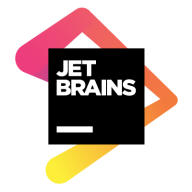

TeamCity and Buildkite are leading tools in the CI/CD industry, each catering to different user preferences. Buildkite stands out for its simplicity and cloud-native capabilities, making it preferable for users seeking ease of setup and manageability, especially in cloud environments.
Features: TeamCity supports comprehensive configurations with features like build chains, cross-platform support, and an extensive plugin ecosystem, making it ideal for complex dependencies. It integrates seamlessly with various technologies. Buildkite is distinguished by its cloud-native operations, smooth functionality with AWS and Google Cloud, and the ability to manage builds using YAML files, offering efficient caching mechanisms for optimizing the build process.
Room for Improvement: TeamCity could enhance its user experience by simplifying its setup process, as users find its configuration complex and challenging. Improved out-of-box solutions and better integration support are desired. Buildkite needs to address issues with scalability and user interface by improving logging, error identification, and expanding third-party documentation and plugin support. Enhanced auto-scaling and easier external service integration would also improve its flexibility.
Ease of Deployment and Customer Service: TeamCity offers diverse deployment options, including private cloud and on-premises setups that cater to enterprise needs. In contrast, Buildkite is optimized for public cloud deployments, providing straightforward integration but limited on-premises capabilities. Both platforms maintain good customer service, though TeamCity users report occasional time zone issues. Buildkite users have access to thorough documentation and vibrant community forums.
Pricing and ROI: TeamCity operates on a freemium model, offering a useful free tier but can become costly for scaling beyond initial offerings, posing a consideration for smaller businesses. Buildkite’s pricing, based on a per-user model, is cost-effective for large enterprises using containerization, although it may not suit smaller teams due to higher expenses. Each solution brings value in build efficiency and integration, with TeamCity supporting robust builds, while Buildkite excels in flexibility and deployment time savings.


Buildkite is a powerful CI/CD tool praised for its scalability and flexibility in automating and managing complex workflows across multiple platforms. Its integration capabilities with various systems and supports for secure, customizable environments enhance development efficiency and data privacy. The feedback highlights significant boosts in productivity and operational cost reduction, making Buildkite a strategic asset for businesses aiming to streamline development tasks and align with organizational goals.
TeamCity is a Continuous Integration and Deployment server that provides out-of-the-box continuous unit testing, code quality analysis, and early reporting on build problems. A simple installation process lets you deploy TeamCity and start improving your release management practices in a matter of minutes. TeamCity supports Java, .NET and Ruby development and integrates perfectly with major IDEs, version control systems, and issue tracking systems.
We monitor all Build Automation reviews to prevent fraudulent reviews and keep review quality high. We do not post reviews by company employees or direct competitors. We validate each review for authenticity via cross-reference with LinkedIn, and personal follow-up with the reviewer when necessary.